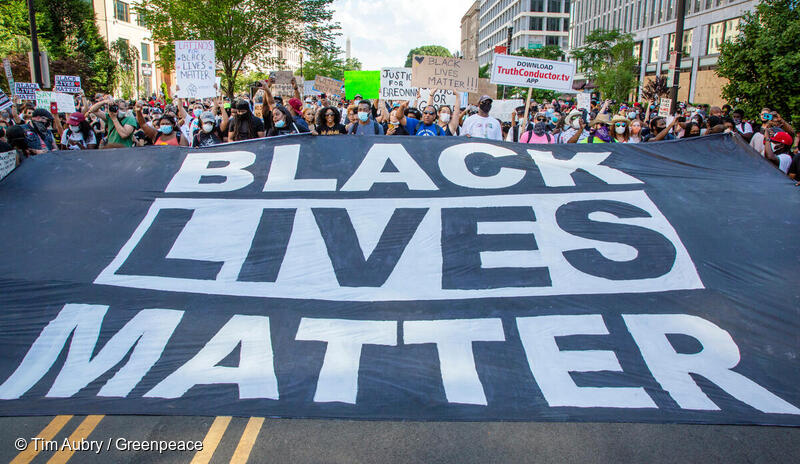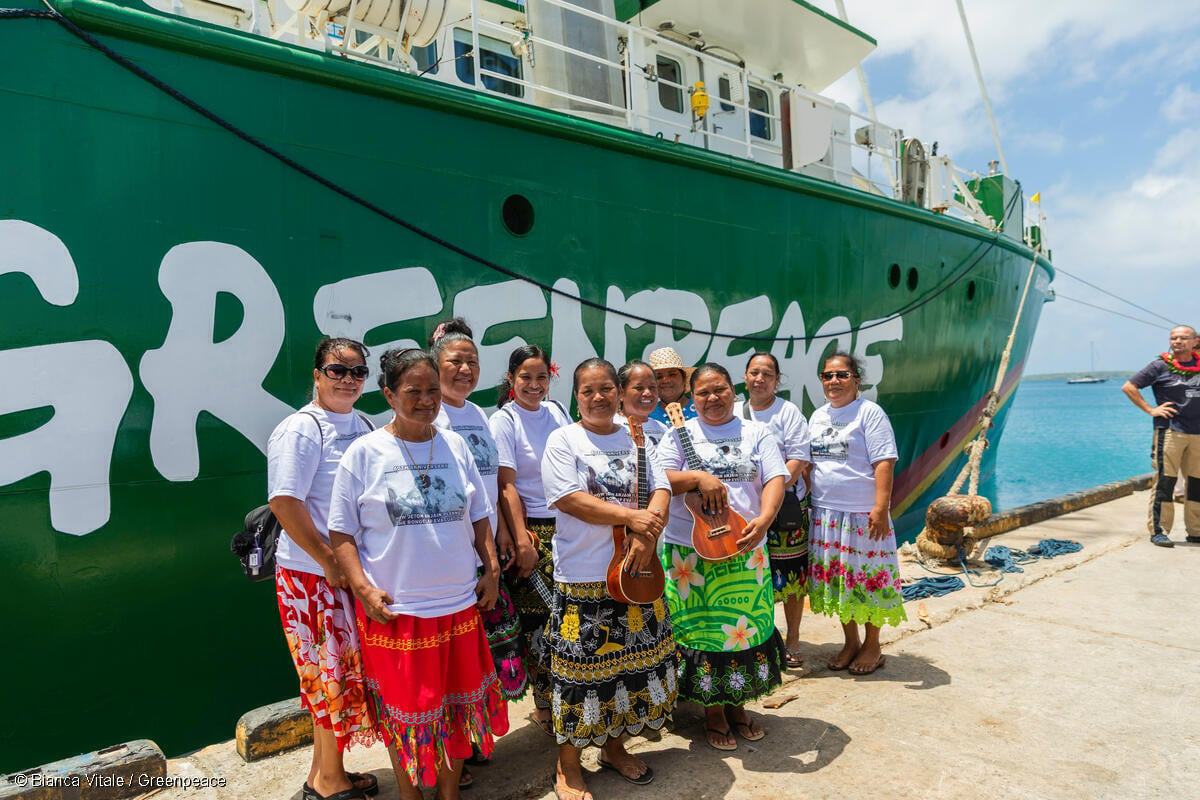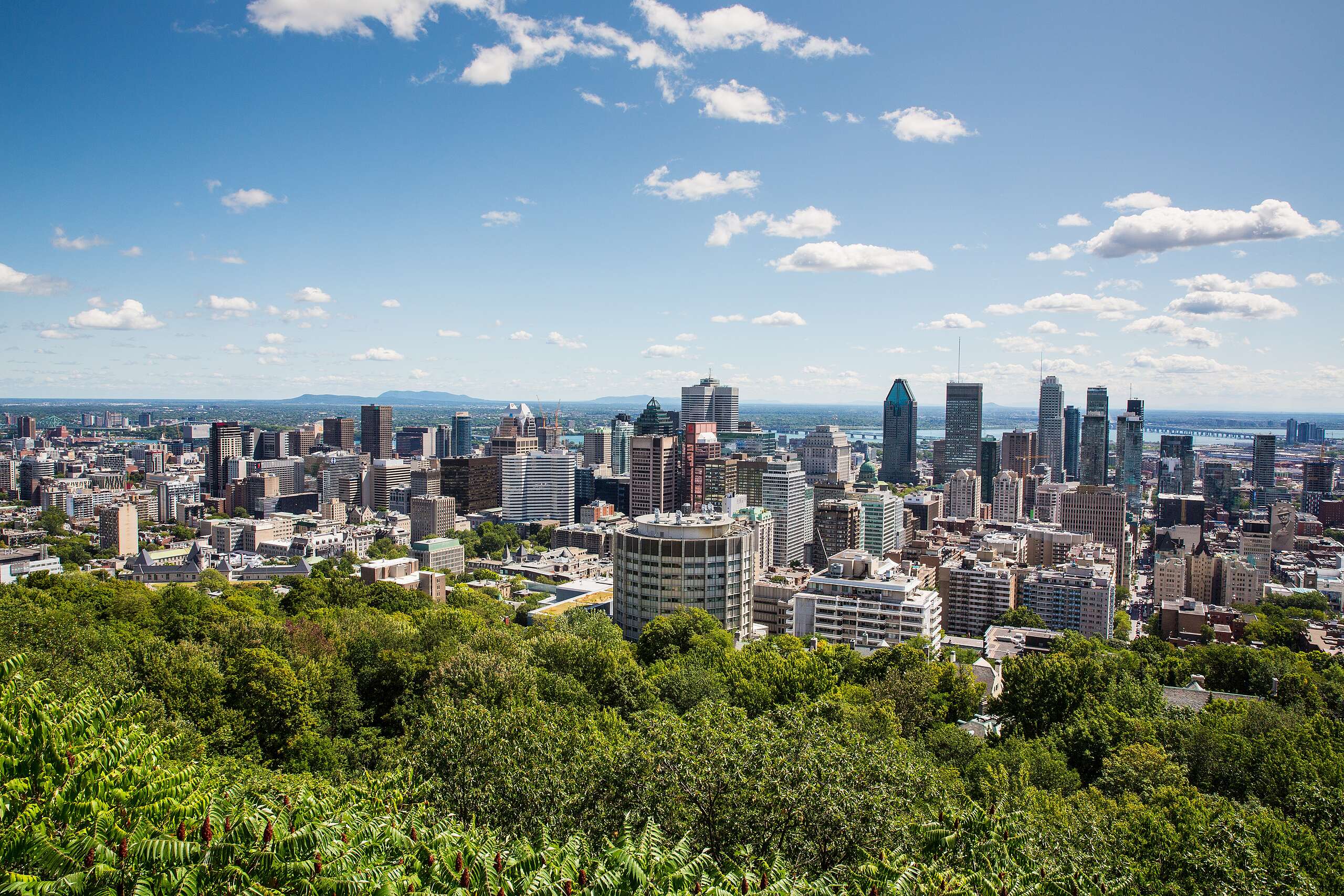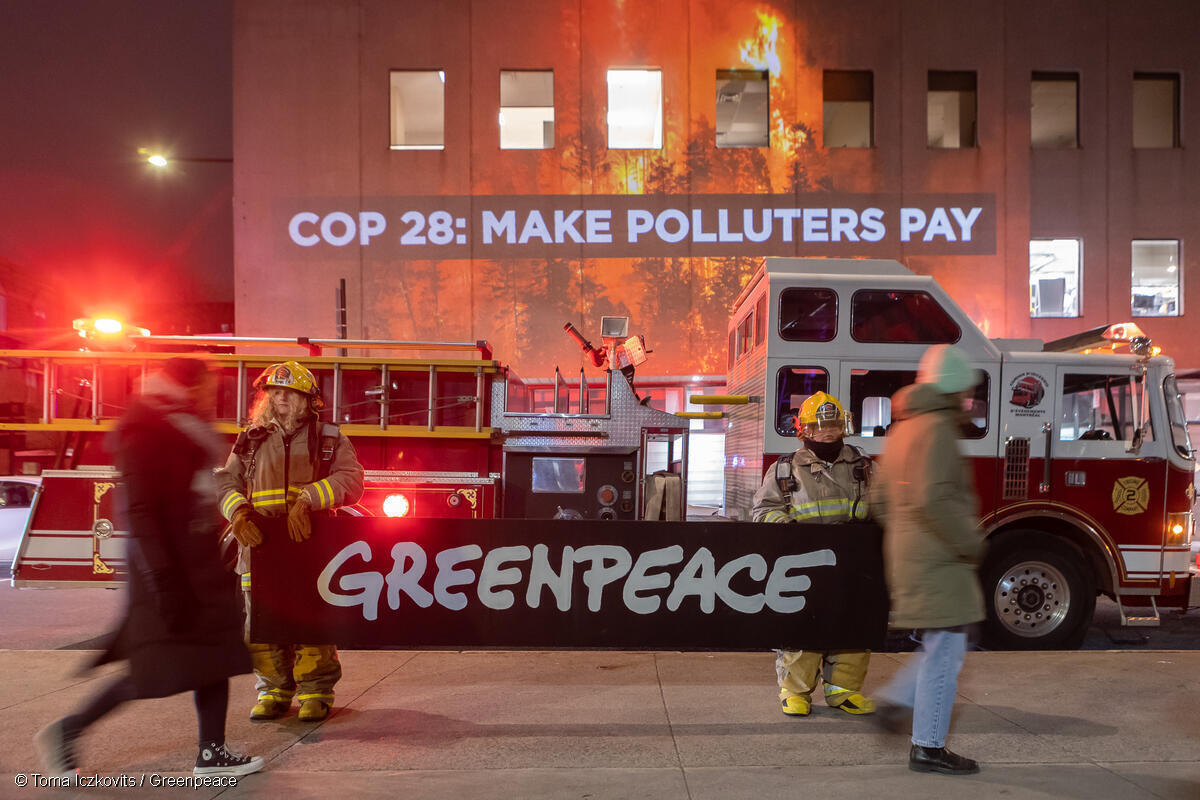
Greenpeace is advocating for a green and just recovery from COVID-19.
What does that mean?
Well, as the federal government spends money and makes policies to help the economy deal with the pandemic, we’re calling for that spending and those policies to focus not only on a transition toward clean energy but to address long-standing and systemic inequality, too.
And while we’ve been meeting with politicians to advocate for equity-based solutions like a wealth tax, universal basic income, and respect for human rights, I know and feel that we need to do more to advocate for explicit, anti-racist solutions that will allow us not just to “build back better” from COVID-19 but to build anew without white supremacy.
Without racial justice, there is no environmental justice, no climate justice, no justice period.
Canada remains “a place that struggles to contend with the harms of white supremacy and where legacies of colonization, slavery, structural inequality and systemic discrimination deeply impact the lives of Black people,” wrote a coalition of advocates for Black health in a recent statement last week, calling for anti-Black racism to be declared a public health crisis. It’s a legacy that’s been evident in the environmental racism of energy, waste disposal and other toxic projects. And as the coalition further noted, it’s a legacy that can’t be separated from police-linked deaths of Black people.
Indeed, the deaths of Regis Korchinski-Paquet, D’Andre Campbell, Chantel Moore during police-led mental health checks illustrate in no uncertain terms the insidious systemic racism impacting Black and Indigenous people in Canada, from access to services to policing.
It’s not enough for politicians to wring their hands, shake their heads or tweet their grief. No. Anti-racist policy proposals to tackle racism in the justice system and widespread systemic racial disparities have been on the table for years.
Prime Minister Trudeau and other politicians have vowed to make change. Yet, they remain hazy on specifics of how … even as report after report collects dust on their shelves — from watchdog reports on racism in the prison system to the non-existent action plan on the National Inquiry on Missing and Murdered Indigenous Women and Girls. Meanwhile, billions of dollars have already been allotted for businesses in recent COVID-19 stimulus plans announced by the Trudeau government.
No more excuses. No more hollow promises.
Starting right now, COVID-19 recovery plans can and should realize long overdue policy proposals put forward by Black communities, activists and experts. Doing so can spark a safer, healthier, anti-racist society.
Here’s a look at just 3 (of the many) options on the table, including defunding the police, investing in social programs and mental health, and free public transit.
1. Defund the police
“A budget is a statement of priorities,” Black Lives Matter Toronto co-founder Sandy Hudson told The National Observer. “Across North America, police budgets are often the number one thing that municipalities are spending on.”
In Canada, we’ve been educated to think that we need police, that it goes without saying for public safety. But, as Hudson notes, we need to rethink given how police have proved to be ill-equipped to deal with mental health emergencies. “Police don’t actually provide a lot of safety for our community at all,” she says. “A lot of the police killings that happen in Canada in particular happen when someone is interacting with the police during a mental health crisis.” Hudson (and other Black activists) propose that “if police are not providing the service well, let’s stop having police provide the service and create a service that does provide what we need properly.”
According to Hudson, this could look like “a civilian-based agency” where responders are trained in social work and health — and won’t show up with lethal force.
Let’s spend some more time on this because it’s a new concept for a lot of people…
When we talk about defunding, we also need to talk about demilitarization. Black Lives Matter Vancouver states that the “The Vancouver Police Department must demilitarise, and make a commitment to work towards officers not carrying firearms”.
Creeping militarization of police forces has long been a problem, gobbling up budgets and impacting racialized and mentally ill communities. For example, researchers have found that the deployment of special weapons and tactics units (SWAT) teams in Canadian cities has risen about 2100% in nearly four decades. They found that SWAT teams are increasingly used for routine areas of policing (executing warrants, traffic enforcement, community policing and responding to mental health crises and domestic disturbances) and bring a paramilitary culture to the force.
At the same time, tear gas (which has its roots in WWI and whose international use is restricted under the Weapons Convention) is allowed for police force use and “riot control”. Montreal police, for example, recently used tear gas and pepper spray on Montreal protesters supporting Black lives.
“We are already hearing clear calls from the right who are saying we have to balance the budget coming out of COVID,” Evelyn Myrie, President of the Afro Canadian Caribbean Association, told CBC in Hamilton, Ontario. She fears that will mean things like deep cuts to social services like shelters, food programs and transit. “What they’re not talking about are ballooning police board budgets where they are spending millions of dollars on things like tanks, full riot control, tear gas. If we were to have an honest conversation most Hamiltonians would see the value of redirecting money into front line social determinants of health.”
So, demilitarize, defund and abolish?
Yes, viable alternatives to policing exist.
As Hudson wrote in the Huffington Post, “Instead of relying on police, we could rely on well-trained social workers, sociologists, forensic scientists, doctors, researchers and other well-trained individuals to fulfill our needs when violent crimes take place. In the event that intervention is required while a violent crime is ongoing, a service that provides expert specialized rapid response does not need to be connected to an institution of policing that fails in every other respect.”
The City Council in Minneapolis, where the death of George Floyd at the hands of police sparked international protest, has already taken the first steps. The City committed “to end policing as we know it and recreate systems that actually keep us safe.”
Black Lives Matter Vancouver has also called on the city to commit to improving social conditions with “the goal of eventually abolishing police and prisons, as they serve the primary purpose of oppressing marginalized communities and protecting the riches of the wealthy minority of denizens.”
Black and Indigenous people remain grossly overrepresented in prison, with systemic poverty and racism in policing as well as in the education system important factors.
2. Invest in social programs and mental health
Real safety and security is based not only on a healthy environment for all, but a just and equal society — not force, surveillance, imprisonment and white supremacy.
“The call to defund recognizes the inherent harms of policing itself. It’s not only about defunding; it’s about reinvesting differently as a society with our public money,” says Robyn Maynard, author of Policing Black Lives: State Violence in Canada from Slavery to the Present.
Think of what could be done with the money from defunding and demilitarizing the police to “build back better” (read: build back anti-racist) from COVID-19. Money could be channelled back into the Black, Indigenous and marginalized communities that have been oppressed and brutalized by police. As Celina Caesar-Chavannes has noted, for example, funding for Black mental health and other services remain underfunded.
In its letter to Vancouver city officials, Black Lives Matter Vancouver calls for routing financial resources away from police “towards initiatives that demonstrably support long-term community safety.” They point to things like:
- Child care support
- Education
- Comprehensive mental health intervention and social support
- Local restorative justice services
- Employment programs
- Access to recreational facilities
- Community-directed public investment
- Peer-based programming
- Culturally-led policies (and more).
Black Lives Matter in Edmonton where policing is the second-largest line item in the city budget, likewise aims to “re-define public safety”. Among other asks, they’ve called on The Mayor and City Councillors to “divest from the EPS [Edmonton Police Service] and reinvest in community-led organizations.” That includes, repealing the $75 million dollar budget increase promised to EPS in 2019 and investing it in “affordable housing, mental health programming, making public transit free and to community-led organizations”.
“Considering the significant strains facing municipal budgets as we navigate the impacts of a global health crisis, there is no better time to invest in more socially sustainable alternatives to policing that keep residents housed, fed, and safe,” says BLM Edmonton.
There is no excuse for politicians poised to spend billions of dollars in bail out money to not meet such demands.
3. Free public transit
When environmentalists talk about free public transit, we are quick to talk about the environmental benefits from electrifying transit and reducing car commuting. But we also need to talk about equity and decriminalization.
“Right now in Toronto and other cities across Canada,” Sandy Hudson said in a National Observer webinar, “the police serve a function as special constables of being fare enforcers. They pursue the transit system — the public transit system — and they check to see if people have paid their fare and have the appropriate proof that they’ve paid their fare. In Toronto this has led to incidents of police brutality against young Black people.”
Making public transit could help in a big way.
“What if we were to defund the police and take a chunk of that money and put it into the transit system so the transit system is free?” asks Hudson. “If the transit system was free, evading fare would not be a crime, you would not need the fare enforcement officers, and you will have just made something so accessible that people living in poverty and precarity really need.”
Let’s build back better than before.
Support the movement for Black lives.
#BlackLivesMatter. #DefundThePolice. #JustRecovery.
This is not, by any means, a full list of policies needed to dismantle systemic racism in Canada, or a full list of policies Greenpeace supports. You can find more resources here and here, including information on systemic racism, petitions to sign and how to donate to the funds of the victims of police brutality and other organizations working to end anti-Black systemic racism. Please also do your own research to find out how to support the movement for Black lives in your own community.




